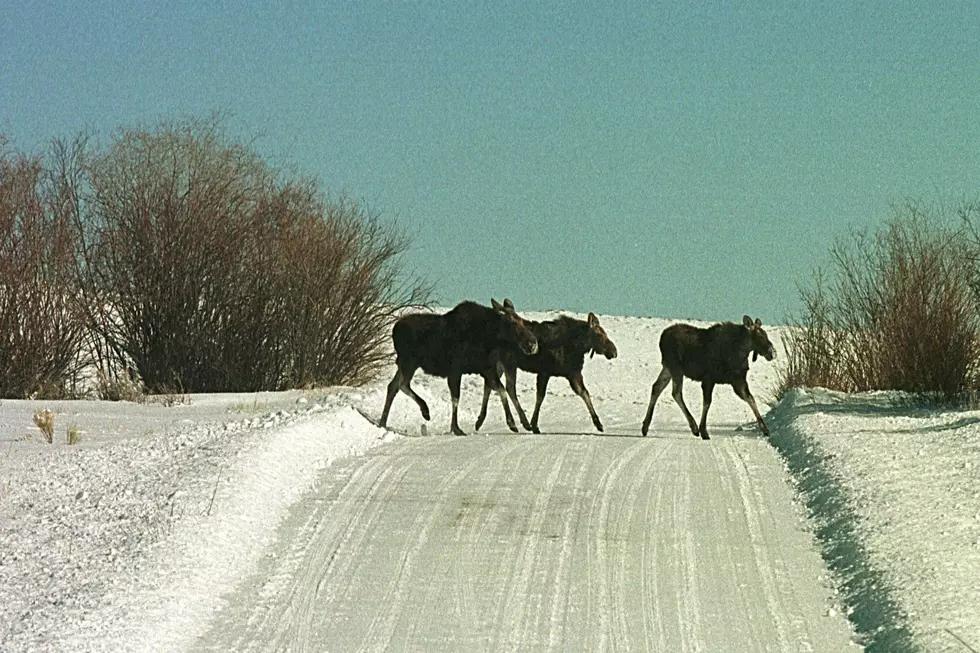
Moose Population Dropping Rapidly
According to the associated press, moose calves are dying at unprecedented levels in New England, mostly because of the hordes of winter ticks — as many as 90,000 on one animal — that latch onto their bodies and drain their blood.
Those are the findings from a new study in the Canadian Journal of Zoology that looked at moose health over several years in New Hampshire and Maine. The study identified 125 calves that died from 2014 to 2016 in the two states and found that tick infestations caused nearly 90 percent of those deaths. Ticks were also impacting female adults, resulting in fewer calves being born and a decline in overall calving rates.
On average, they found 47,000 ticks on a calf. “For a calf, that is just death,” he said. “That leads to acute anemia. The analogy is that someone cuts your arm off and you didn’t stop the blood flow. Physiologically, you can’t deal with that. You have to replace that blood.” Maine’s moose population is thought to have fallen from 76,000 five years ago to between 60,000 and 70,000 today.
Frigid weather and extended snow cover once kept the ticks in check. But with climate change resulting in winters starting later and less snow in some places, winter ticks have more time to find their hosts. On top of that, these winter ticks appear to especially like moose, since the animals lack the grooming strategies of elk and deer that help remove the parasites. These winter ticks, compared to deer ticks, also never leave their host and live several feet above the ground, a perfect place to catch a ride.
Still, experts expect that moose will survive this parasitic onslaught and that their numbers will reach the point where there just aren’t enough animals to provide a stable food source for the ticks — thus causing the parasite population to fall and the moose numbers to rebound.
But not everyone is willing to let nature take its course. There is a vibrant debate within the conservation and hunting community over the role hunting can play in stabilizing the population.
In Maine, wildlife regulators increased the number of moose hunting permits by more than 20 percent this year. The moose hunt is taking place this month and next. And moose have shown decent survival rates in the far northern part of the state recently, the state Department of Inland Fisheries and Wildlife has said. But winter ticks and other parasites remain a problem in Maine.
More From B98.5









